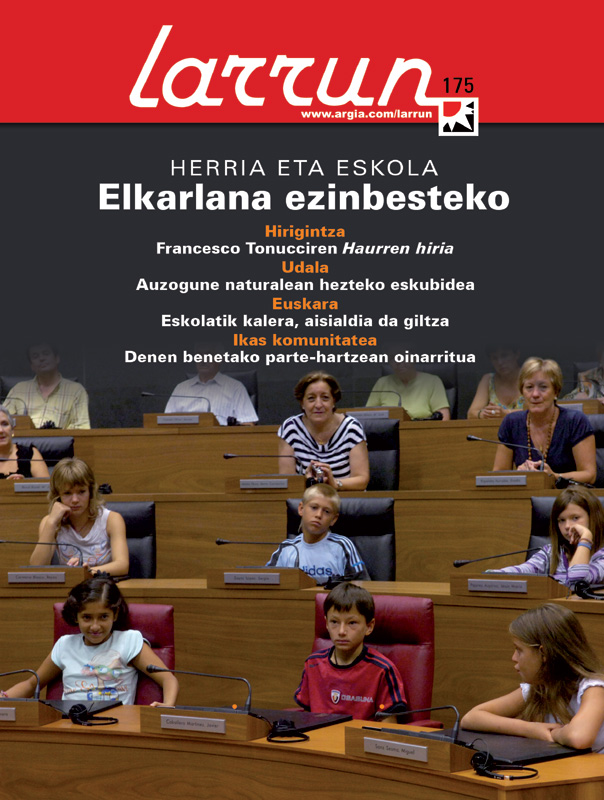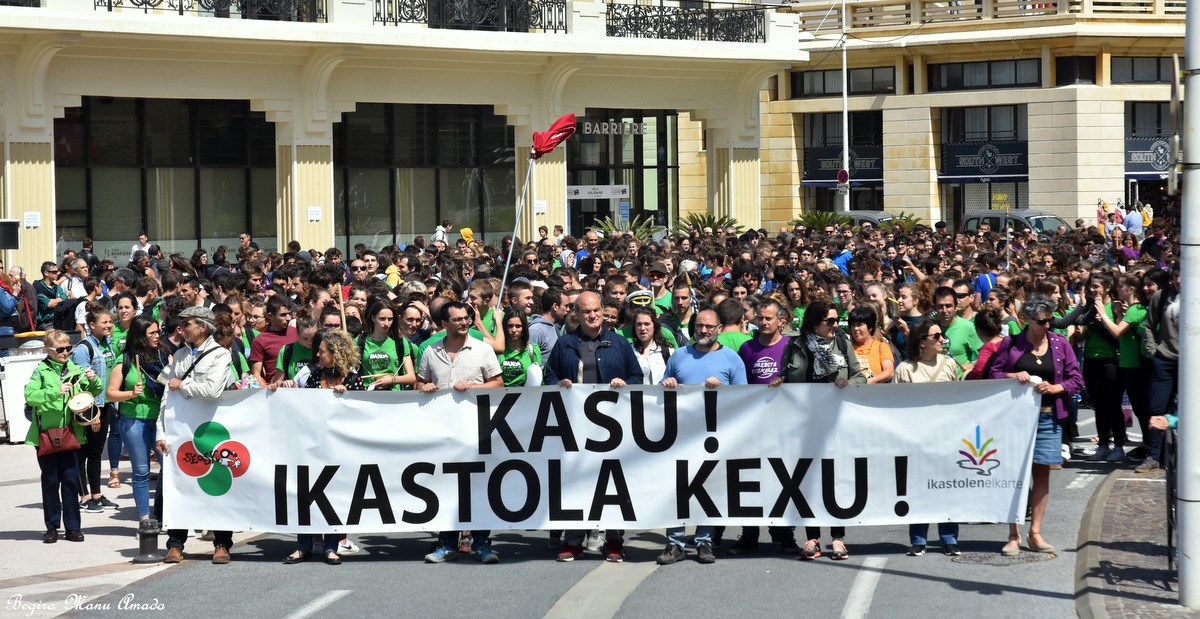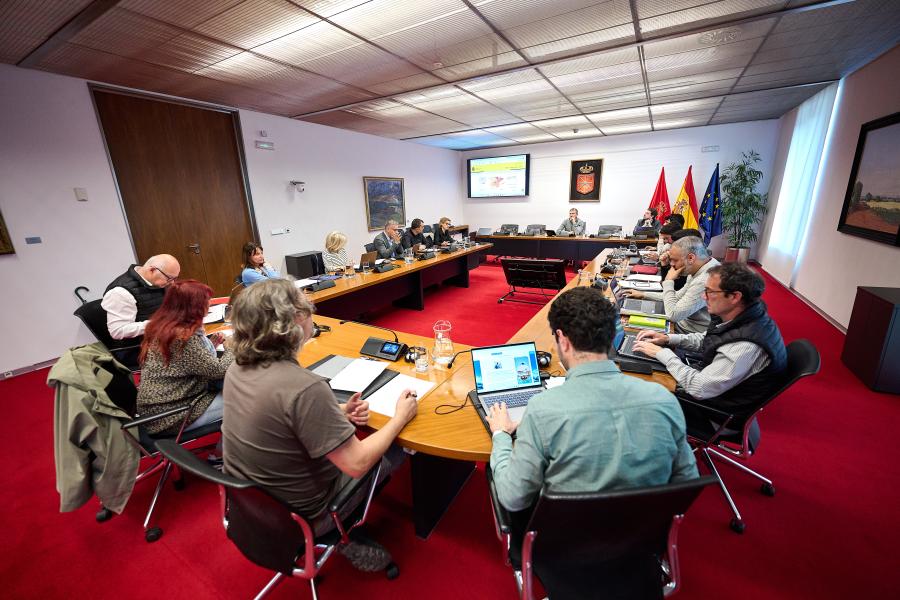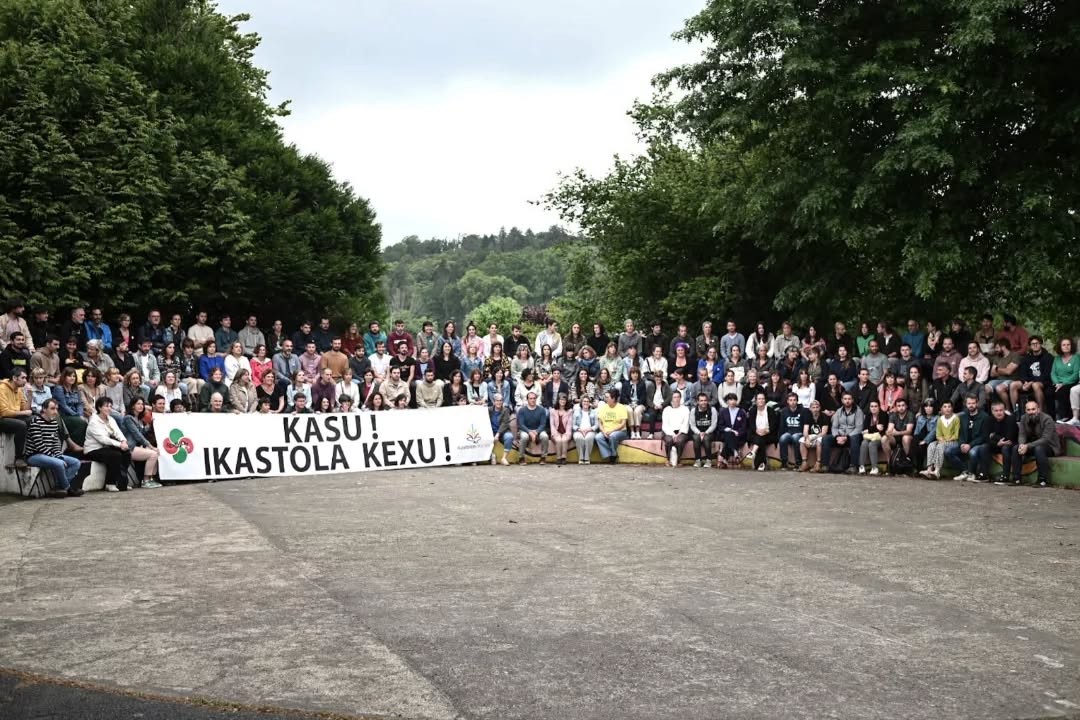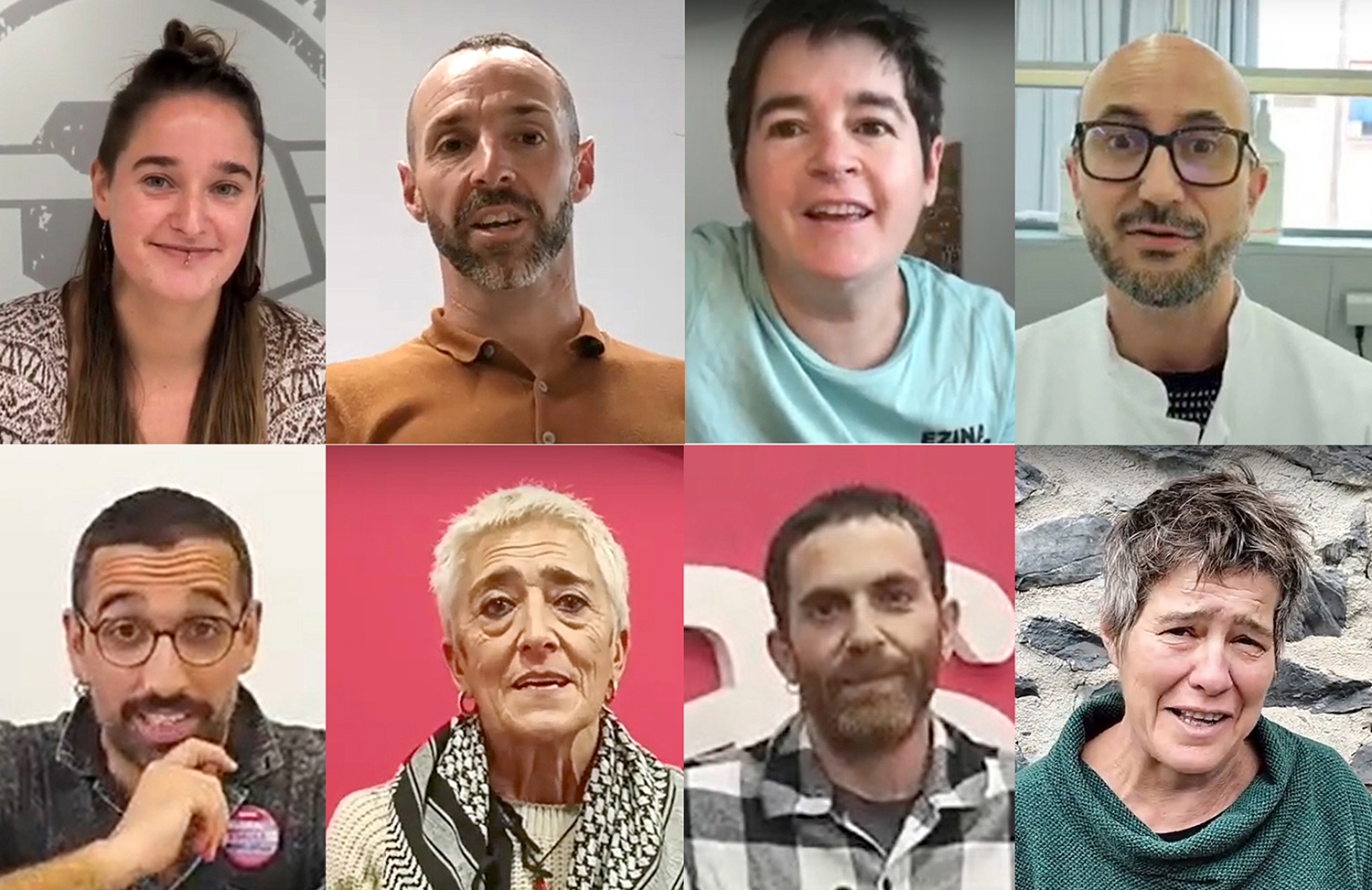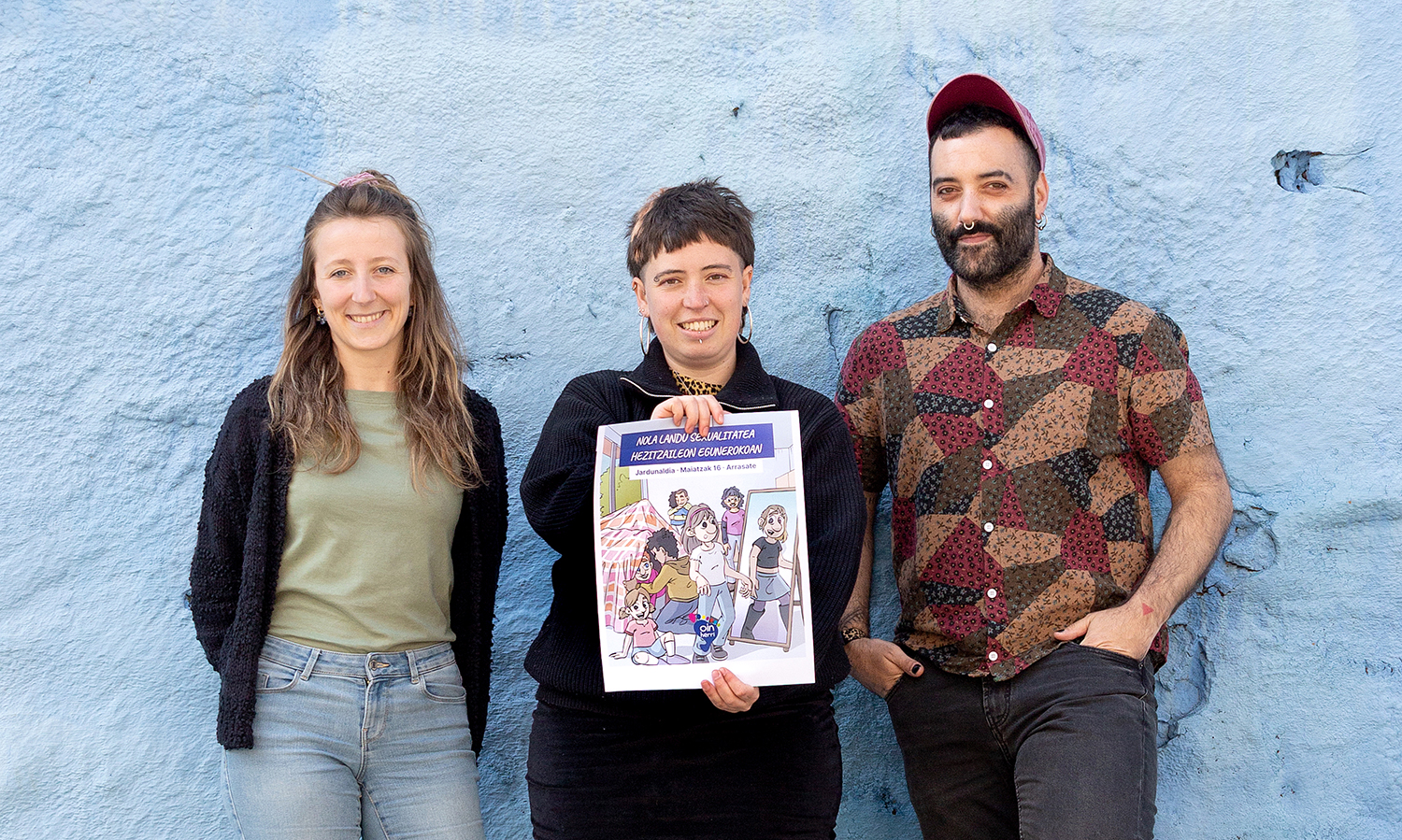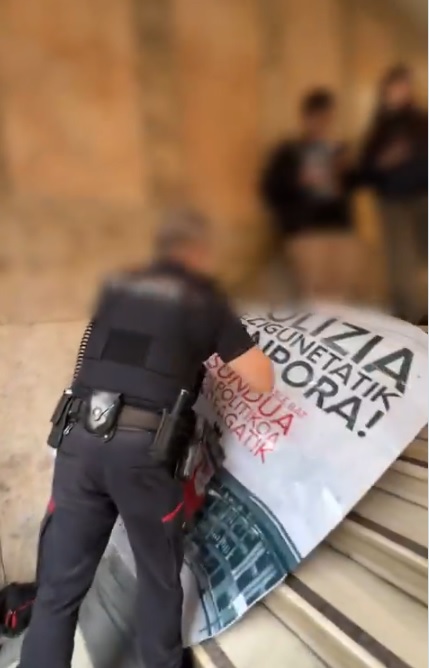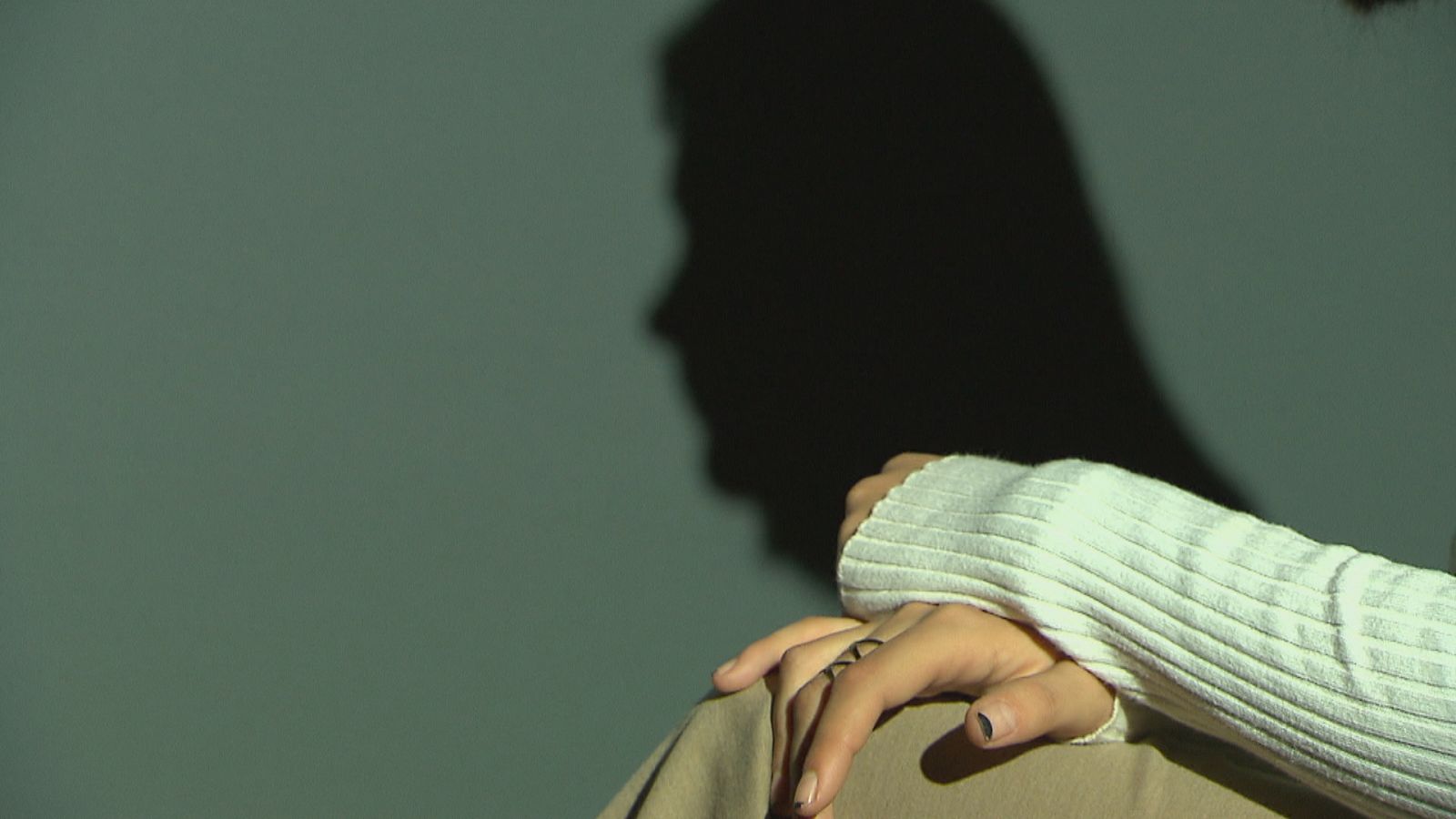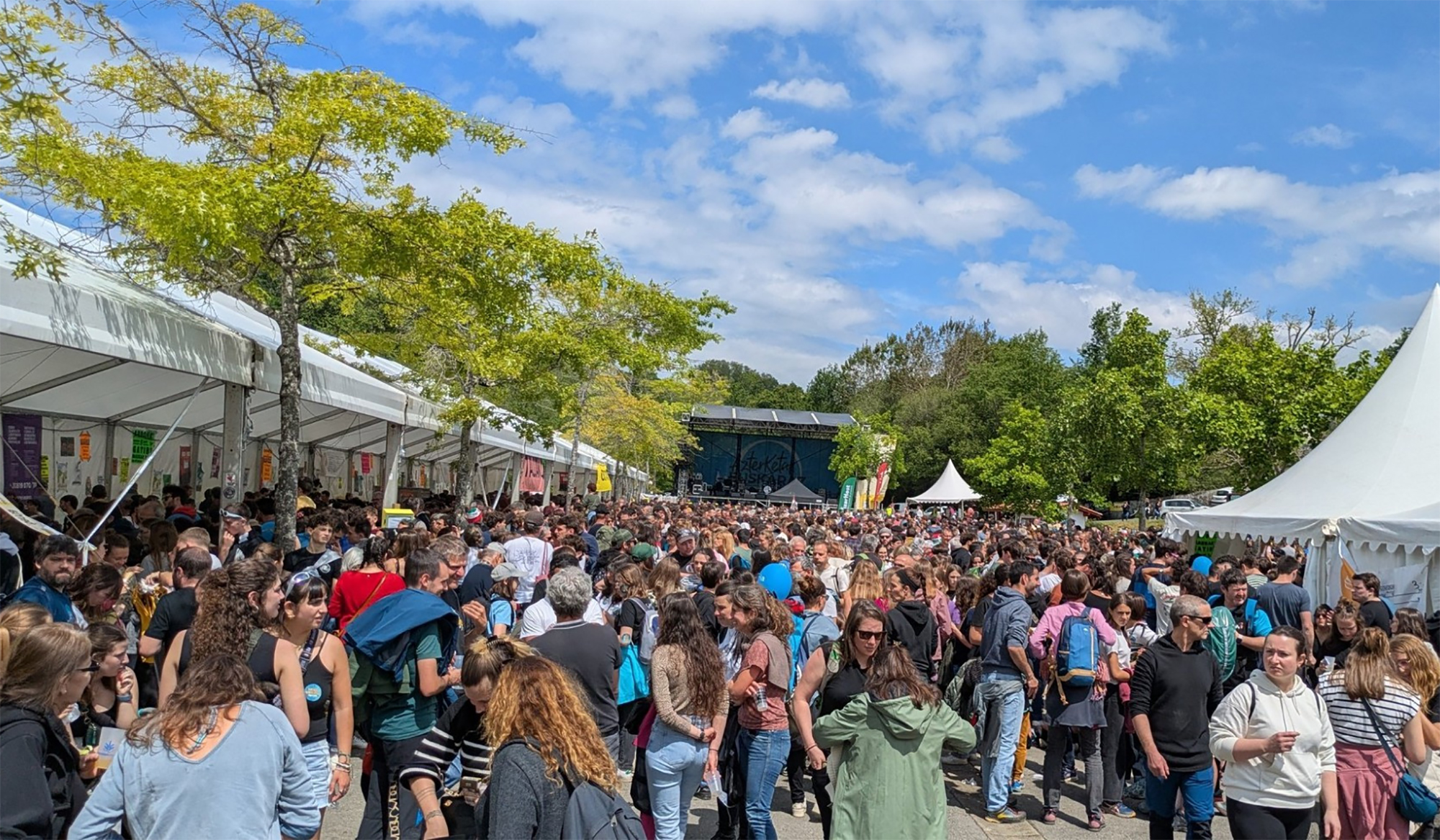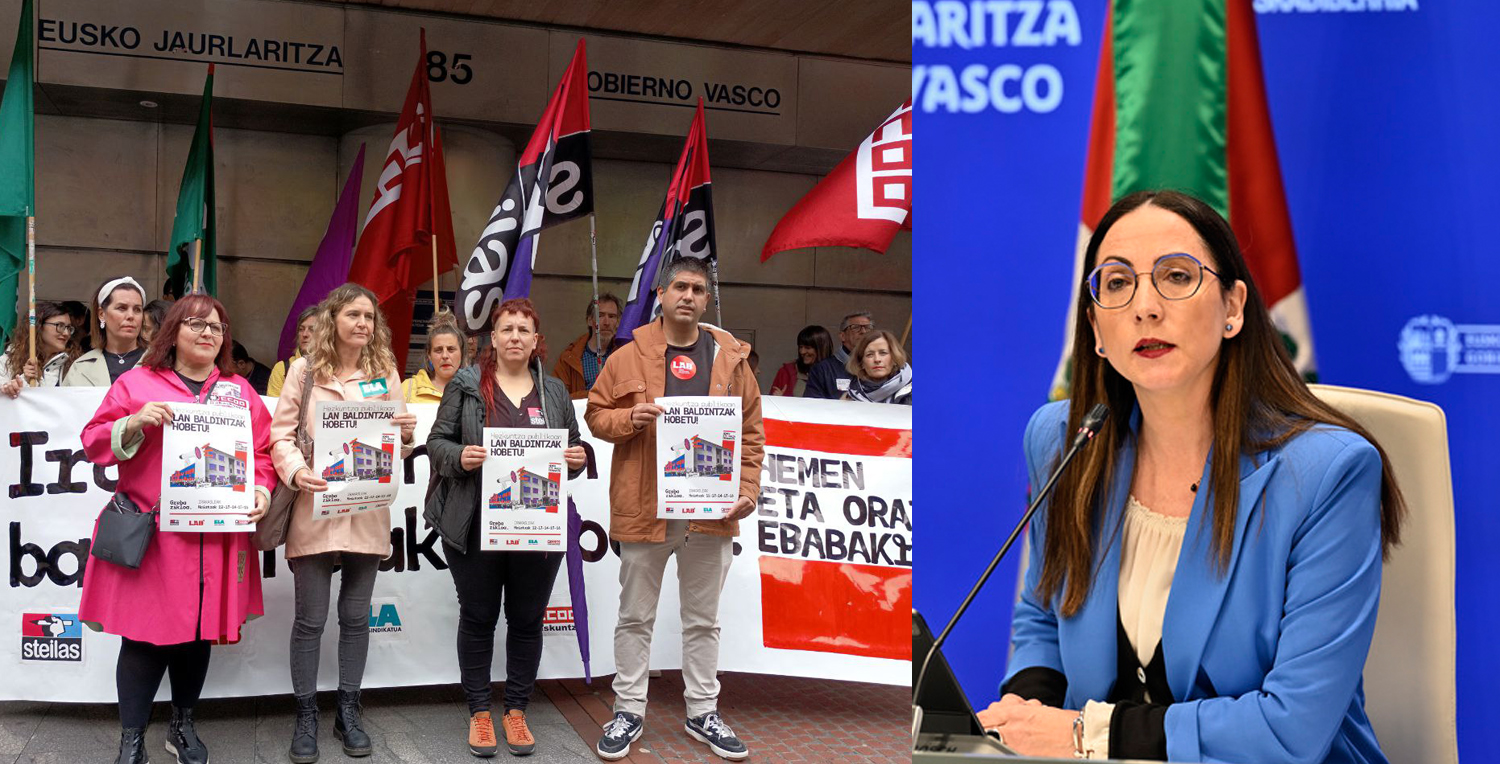"The project has an apparently small goal: that children can leave home alone"
- Francesco Tonucci, Italian psychopedagogue, thinker and cartoonist, claims a city tailored to the children, so that children feel more comfortable on the street than in schools and libraries. Children's City of Tonucci. Maider Elkoro Gabilondo (and directed by Ester Zapira Isasi-Isasmendi) has translated into Basque another way of thinking about the city.
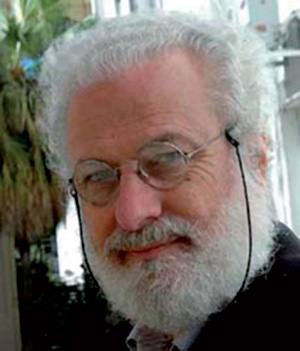
The proposal is to replace the adult, male and worker citizen with a child. It is not about preparing initiatives, offering opportunities, creating more structures for children, or defending the rights of a vulnerable group. (…) However, the obligation of the Administration should be to reduce the sight of children. The key is to accept the diversity of the child, as this is the guarantee of all pluralities. (…) It is believed that when the city becomes more suitable for children, it will become more suitable for todos.La children's city is a concrete proposal that arises from an experience started in 1991 in the municipality of Fano and that, at present, has received the interest and adhesion of many Italian and foreign municipalities. (…)
The first thing to do and the most important thing to do is to give boys and girls the role of protagonists, to give them the word, to offer them the opportunity to share their opinions and that we adults, the attitude of the listener, assume with a desire to understand it and to take into account what the boys and girls say. Of course, what is being proposed for children is valid for all citizens, for the elderly, for the disabled, for immigrants. On the other hand, the child is a “diffusing path” and a guarantee for all. No one can replace children without worrying about asking, interacting or listening. In giving the floor to the children, we do not ask them to solve the problems of the city we have created, but we do learn to take into account their ideas and proposals. (…)
Freeing stereotypes and blowing creativity, boys and girls face reality, their needs, desires and possible solutions. (…) For this to be possible, we need to train new workers who are able to work with children. (…) If children have the opportunity to participate in the city project, we can be sure that, both today and tomorrow, when they are older, the city will feel its own, a city that needs to be cared for and defended, as we all feel with our house. (…)
The project is a concrete and apparently small and common objective: Let the children be able to leave the house alone. (…) The way our children grow up today is completely unknown, new, incomparable to our childhood. They are not new ways because of the loss of sense of neighbourhood, solidarity and security, but because of the complexity of social relations and the increase in distances. It's hard to get to know each other, it costs to get down from the apartments on the upper floors, it's dangerous to cross the street, etc. However, the city has become richer, more articulated and, if you will, more fascinating. On the other hand, leaving home, walking alone on the streets and knowing their environment is an important requirement for the child's social and cognitive growth. Walking, walking, is a pleasure for adults, a gift we make ourselves from time to time, but it is necessary for children. Our movements are more and more displacement, steps from one point to another, which have an objective and are totally linked to a function. With these worries in the head, we are unconcerned and we are trying to reach our destination in the shortest possible time. Children play very differently. Going from one place to another for children is a succession of moments of the present, each moment is by itself important, worthy of a stop, a miracle or a contact. Then the times are extended, the children's pockets are filled with stones, leaves and papers and the head of images, questions and discoveries. And everything comes together, the beautiful, the new, the general and the special. This often leads to misunderstandings with the elderly and they say nonsense like “don’t stay every time!” or “Don’t waste your time!”, without realizing that the individual becomes big because of the time lost. The possibility and autonomy of leaving children is inversely proportional to ours: the more we drive adults, the more we expand our field of movement, the more risks we generate, hinder spaces and pollute the air, increasing the difficulties of autonomy of our children. When kids move around, they move more and more frequently with us, in our car, in the back seat. Thus, the child does not see the city, does not distinguish its characteristics, passes quickly, cannot respond to the constant needs of the present, of curiosity and of the stops. In this strange way of moving, it doesn't fix anything, it doesn't manage to organize its space, it can't build its city. (…)
Today, children's free time has disappeared. The numerous risks that exist outside the door suggest that children do not leave the house alone and the best economic conditions guarantee enrollment in several afternoon schools: swimming pool, guitars, English, dancing, gym. (…) It is important that the child can only leave his or her childhood, take risks and pleasures to leave security at home. Go down the street, find a friend, arrange the game and the rules and then play, or study nature, look at objects, tell the attitudes of adults, take risks and overcome obstacles, face conflicts and solve them, go home tired, maybe dirty, excited, eager to tell things that parents can't know. Children should have lived through this experience from three to four years old, and from wherever we look, their complexity cannot escape us, today the child will begin to live from the age of ten and perhaps later, when the era of cognitive and social development has been over for a long time. What consequences will this delay have on the child? (…)
The child can be a sensitive environmental indicator to measure the health or degradation of the city: if there are children playing, walking and children alone in the city, the city is a sign of health. If you don't see any child in the city, it's a sign that the city is sick. A city where children circulate on the street is safe, not only for children, but for the elderly, the disabled and for all citizens. (…) But in order for children to be able to leave the house alone, the city needs to be changed, albeit gradually. A city that has developed savagely in the defense option must be able to make periodic choices, to open the doors to life and the future. We must therefore work at different levels and in multiple directions. (…)
Walking peacefully and being able to use public spaces are the rights of all citizens. The return to free movement on foot is a priority obligation of the Administration and a direct and serious way of preparing the future of the city. The power of cars, the future that will end where the pedestrian begins, the future of a cleaner and less “occupied” city, the city where it can move, the city where it can unite and be together, that is, a city that can live better, where the child can leave alone with his friends. We must therefore return the seat immediately to the citizens and then try, as far as possible, to solve the problem of parking lots. (…)
Adults need to be made to understand that they are not a good parent, that children have everything or that they are helped everywhere in their lives. The main characteristic of “good father” should be that as the days go by, the child has fewer and fewer needs. (...)
A few decades ago, the kids were everybody. Neighbours played an important role in social control. When a kid playing outside needed something, he would discover the curiosity, attention and concern of his neighbors. (...) The criteria for the internalization of social responsibility with the child went beyond knowing it or being a neighbor: the child only walked away from home, was controlled by all the adults he found. More than neighbors, we could say they were “friends of the child.” (...) This social solidarity seems to have disappeared. The defense option has removed, concealed or disguised, at least, interest for others. (...) It is therefore necessary to identify and educate the new childhood allies as soon as possible. (...) We have to show the child that every adult can be his friend or friend. We must also put aside the terrorist recommendations: “Don’t stay with anyone.” (...)
The school, together with parents and starting with primary education, should encourage children to go to school alone, to walk, according to their older peers and peers, living a little autonomy and assuming their rights and duties as passersby. This experience can be discussed and activities organised. Verification studies of the different routes can be carried out, identifying the routes with the highest risk and jointly, seeking the best solutions to avoid these risks. (...)
To rethink the city, to want to be otherwise, to be the measure of all, is a serious necessity (…) we must think of a more fragile, simpler city, where all citizens will have more weight.
In the debate on education, the neologism that some of us are using (I think we can call it that) is pedagogy, which perhaps needs an explanation. The idea is to give pedagogy a chance, separating the two things. As in the distinction between science and science, pedagogy would... [+]
Many animals use coincidence with the group as a survival strategy. This character has often been neglected, equating many collectives with herds, as a mass without its own character that must be guided. But the community, when it suspects the threat, knows how to use its... [+]
Donibane Garazi inguruko herri ttipi batean sortua da Bea, eta 1970eko hamarkadan ondoko eskola publiko batean ikusi zituen bortizkeria, sexu eraso eta bortxaketak salatu dizkigu. Irakasleak eragiten zizkiela tratu horiek ama eskolako eta lehen mailako haurrei, mutikoak bortizki... [+]







